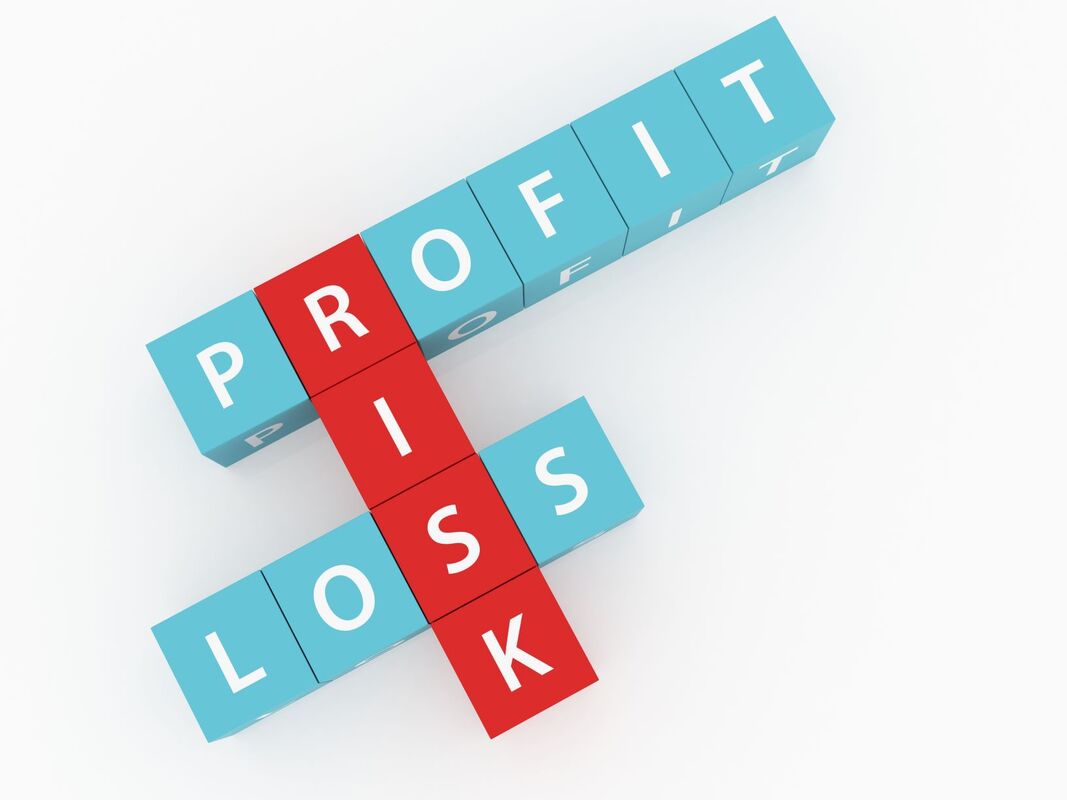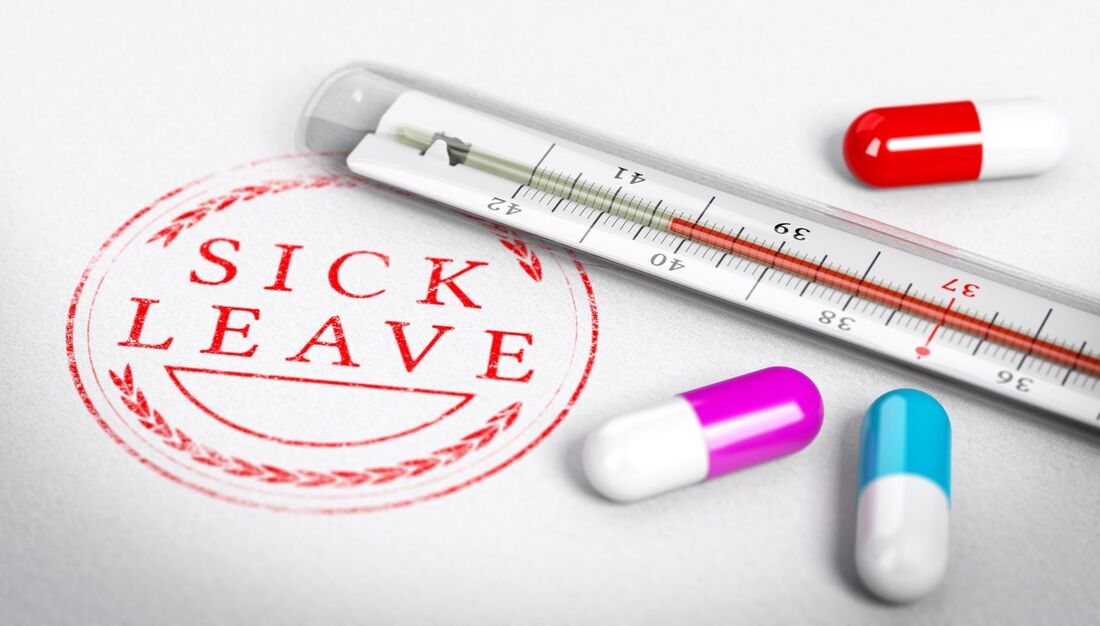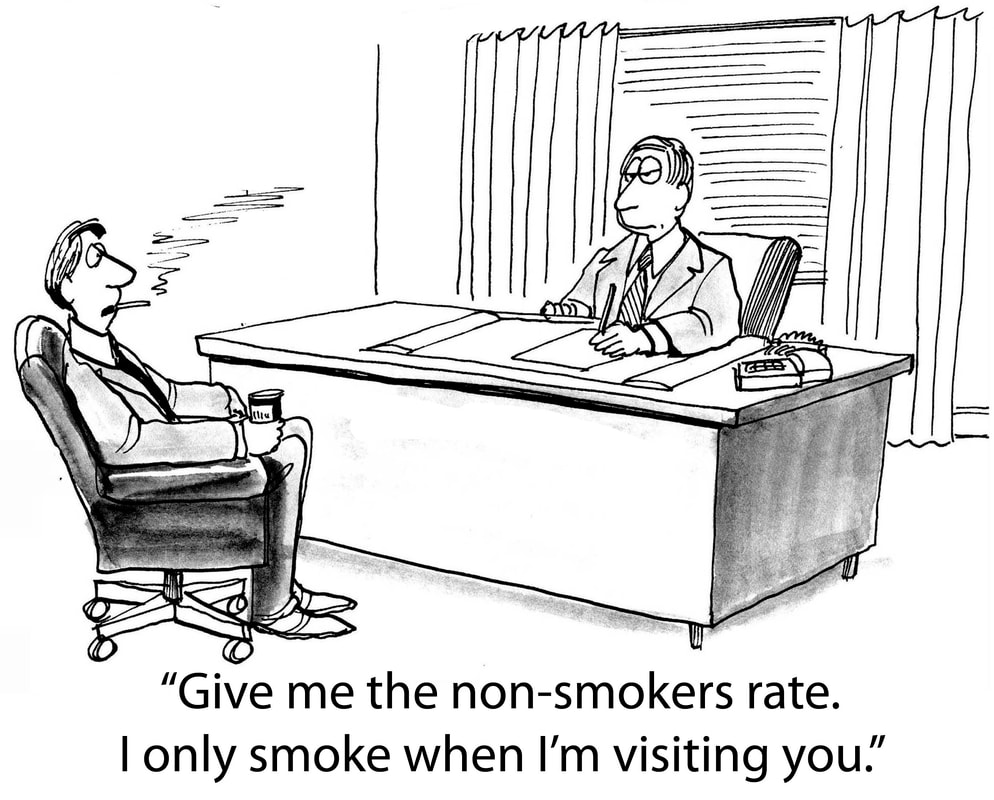Hecht Insurance Advisors, LLC Blog |
Homeowner's Insurance Issues during Coronavirus Outbreak
Here's what you should know about your homeowner's insurance at this time. Business at home If you have had to move your business to your home, you may want to review your homeowner's coverage. The typical homeowner's police have very low limits on business property (usually up to about $2,000), which would likely not be enough if your equipment is damaged or stolen. If you are suddenly running your business from home, please call us and we can go through your policy and, if needed, we can work with your insurer to see if they offer a home business endorsement or higher coverage limits for business property. Also, if you are running an Airbnb out of your home for a room or another property, you should have purchased landlord coverage or home-sharing coverage as a typical homeowner's policy may not cover damage incurred by paying guests. At this time, you are likely not getting anybody staying at your place, so you should contact your insurance company about pausing or canceling coverage since you will have no need for it for a while. Filing a claim If you have an incident in your home and need to file a claim, there's a good chance that your insurer will be unable to send an adjuster for an inspection. Most homeowner's insurers now have apps or offer you the ability to file your claim online on their website. The procedures for filing a claim using an app or doing it on your insurer's website is pretty straightforward. You can start by taking pictures of the damage and providing receipts or a list of the property that may have been damaged or stolen. If it was stolen, make sure you file a police report and submit that with the claim as well. However, if you have a high-dollar claim, the insurer may send an adjuster to inspect the damage before they pay the claim. For smaller claims, it's likely they will pay them out. What insurers are doing Insurers are making adjustments to their operations and policies during this time as well. Their actions will vary from company to company, but there are similarities in some of their responses:
0 Comments
The Limits and Gaps in a Business Owner's Policy
Typical BOP coverage
This article focuses on the typical Insurance Services Office BOP form, and some carriers have created their own with different coverages and limits. First, let's look at what the typical BOP covers:
The main BOP gaps Business income protection in a BOP is reasonably extensive for loss of income after an event such as a fire, as the policyholder is fully covered for the period it is closed during restoration, for up to 12 months. However, there are five main gaps in a BOP: Payroll protection • A BOP policy will only cover payroll of "ordinary" employees for 60 days, unlike a standard business income policy. Ordinary employees are all of your staff excluding officers, executives, department managers and contract employees, among others. If you want to extend payroll coverage for your ordinary employees beyond that, you have to purchase an endorsement for the additional period you want. Payroll for non-ordinary employees, as listed above, is covered for the entire period of your business's restoration up to the 12-month maximum. Restoration period • The period of restoration, during which the policy will cover your business income, is limited to 12 months, and that time can pass quickly when you consider everything that may need to be done to return your firm to "operational capability." It's at that point that business income loss coverage ceases. Consider that if your business burns to the ground, you will need to draw up new building plans, obtain building permits and make sure your new building is up to code. You also have to factor in the time it will take to rebuild the structure. If all of this takes longer than 12 months, business income loss coverage ceases. The policy will not extend protection beyond this period. By the way, "operational capability" for the purposes of business income means that the company is operating at or near pre-loss production or sales capacity. It does not mean bringing the business income back to pre-loss levels. Extended business income • The BOP will pay for lost income for an additional 30 days after the firm has reopened for business. In many cases, this amount of time will not be enough to bring your business income back to the same level as before the incident. You can purchase a policy extension for this coverage. Seasonal increase limitations • One of the benefits of a BOP is that it will cover loss of business income in periods of seasonal increases. The standard increase limit is 25% for business personal property. The typical limit for most small business purchases is $100,000, but that does not automatically mean that the policy will cover up to $125,000 during the business's peak months. That's because BOPs state that the business personal property limit must equal 100% of the average monthly values on hand for the 12 months preceding the loss. In other words, it takes into account the seasonal increases from the year before. Here's an example of how the seasonal increase limit may yield the claims payment short of expectations: Randy's Raft Rental, which carries $100,000 in coverage, experiences an uptick in business in June, July and August. While it enjoys revenues of $100,000 a month in the nine other months, during the peak period revenue jumps to $125,000 per month. To qualify for receiving the seasonal increase to ensure it is covered for the full $125,000 during the peak season, policy limits would have to be increased to $106,250 (the sum of 9 months x $100,000 + 3 months x $125,000, divided by 12). If you are confused, we can explain. Electrical damage/system breakdown Typical BOP policies specifically exclude losses caused by systems breakdowns, or damage from electrical or steam boiler problems. If you want this coverage, you can pick up the "Equipment Breakdown Protection Coverage" endorsement. New Law Requires COVID-19 Paid Sick Leave, FMLA Benefits
Paid sick leave
Employees are entitled to two weeks (80 hours) of paid sick time for coronavirus-related issues. Eligible workers will receive their regular pay, up to $511 per day and $5,110 total. Those caring for someone subject to quarantine due to COVID-19, and parents of kids who can't go to school or daycare, will receive two-thirds of their regular pay, up to $200 daily with a $2,000 cap. The emergency sick leave benefit can be used immediately, regardless of how long the worker has been employed with you. It can be used when they cannot work or telecommute for any one of the following reasons:
The law does not require certification of an order by the government or a health care provider. But employers can require reasonable notice procedures, such as not announcing in the middle of a shift that they take COVID-19 sick leave. But they cannot require the employee to find a replacement worker to cover the shifts they will miss. Employers must post the law's requirements "in conspicuous places." Employers are not allowed to discipline a worker who takes this sick or FMLA leave for coronavirus purposes and, if an employer refuses to provide the leave, they can be ordered to pay both back pay and statutory damages that are equal to the back pay the employee is owed. This law provides payroll tax credits to offset all costs of providing these paid leaves. FMLA The FMLA portion of the law provides for 10 additional weeks of FMLA leave, but only for those who must stay at home to care for a child whose school is closed or their childcare provider is unavailable due to COVID-19-related issues. These 10 weeks will be paid at two-thirds the employee's regular rate of pay, up to $200 per day with a cap of $10,000. They will also receive 12 weeks of leave with job protection, though employers of health care or emergency care providers can exclude such employees. The employee would likely use up their two weeks of paid sick leave before applying for FMLA benefits, which unlike traditional FMLA (which is unpaid), are paid leaves after the first 10 days under the new law. Employees who have been working for more than 30 days are eligible, and the employer can require them to provide reasonable notice that they are taking leave. A final word This law only applies to employers with fewer than 500 workers, so it leaves uncovered those people who work for larger companies. Also, employers need to make financial plans, as the credit cannot be claimed until after the employer pays their payroll taxes. A bigger issue is that the law requires that workers be paid the sick leave even if they are not sick, but have been ordered to self-isolate. In states that have ordered workers to self-isolate, such as California, employers could be faced with an avalanche of paid sick leave claims all at once. This law sunsets on Dec. 31, 2020. IRS Allows HDHPs to Pay for COVID-19 Testing, Treatment Pre-Deductible
Specifically, the new guidance states that HDHPs with attached HSAs will not lose their plan status if they provide medical care services and items related to coronavirus testing or treatment even before an enrollee has met their deductible.
While the regulation does not require HDHPs to cover the testing and treatment without any out-of-pocket expenses by the enrollee, the plans can do so ― and without breaching the rules regarding these plans. The new rule could also pave the way for non-HDHPs like PPOs and HMOs to also provide coronavirus testing without out-of-pocket costs for their participants. While there is no rule preventing them from doing so now, many of the country's large PPOs and HMOs have been reluctant to start offering free testing until they know how HSA plans would be affected. Typically, enrollees in HDHPs with an attached HSA are required to pay all of their medicinal costs up to their deductible before the insurer will pay. The Trump administration earlier issued another rule that allows HDHPs to foot the bill for certain preventative health services, such as vaccines and screenings for specific conditions like diabetes and high blood pressure, before the deductible is met. In 2018, 23% of employees enrolled in employer-sponsored health insurance plans were enrolled in an HDHP with an HSA. The 2020 minimum annual deductible is $1,400 for self-only HDHP coverage, and $2,800 for family HDHP coverage. In notice 2020-15, the IRS says that "Due to the unprecedented public health emergency posed by COVID-19, and the need to eliminate potential administrative and financial barriers to testing for and treatment of COVID-19, a health plan that otherwise satisfies the requirements to be an HDHP under section 223(c)(2)(A) will not fail to be an HDHP merely because the health plan provides medical care services and items purchased related to testing for and treatment of COVID-19 prior to the satisfaction of the applicable minimum deductible." The notice only applies to coronavirus and does not void any other requirements governing HDHPs and HSAs. It states that "Individuals participating in HDHPs or any other type of health plan should consult their particular health plan regarding the health benefits for testing and treatment of COVID-19 provided by the plan, including the potential application of any deductible or cost sharing." The decision came after the American Benefits Council, which includes many of the largest corporations in the country, sent a letter to the Treasury Department asking it to confirm that HDHPs could cover COVID-19 testing and treatment without enrollees first having to meet their deductibles. Coverage Disputes Over Online Attacks Grow
In this latest case however, a judge in the U.S. District Court in the Southern District of New York ruled that American International Group must cover $5.9 million that a company had been duped out of by Chinese hackers in 2016.
AIG had disputed the claim saying that the professional liability policy the business had does not cover "criminal acts," adding that it had never sold the company a cyber policy. These disputes are becoming more common and you should pay attention to your policy exclusions, as well as consider cyber insurance, if you have assets that could be exposed through a cyber attack or fraud. How was the business scammed? SS&C Technologies received spoof e-mails that purported to come from one of the company's clients, Tillage Commodities Fund, a commodities investment firm. The e-mails instructed the company to make six wire transfers to a bank account in Hong Kong. The scammers masqueraded as Tillage employees with e-mail addresses that spelled "Tillage" as "Tilllage." But according to court documents, there were telltale warning signs that the e-mails were fishy:
Based on the above, staff at SS&C were not too diligent in looking out for possible business e-mail compromise scams involving a third party hacker posing as someone else (a client, a vendor or even a manager or president of the targeted company) via e-mail and requesting a wire transfer into a bank account. This type of scam, which cost organizations $300 million every month in 2018, according to the U.S. Department of Treasury, is covered by a standard cyber insurance policy. SS&C did not have a cyber policy, so it sought coverage under its professional liability policy for the losses it sustained when transferring those funds. AIG did pay for SS&C's legal defense costs after Tillage Commodities sued, but refused to cover the $5.9 million in stolen funds. According to court documents, AIG's policy included a clause that it would not provide indemnity coverage for losses arising from "dishonest, fraudulent or criminal acts." What this means for your firm? While this case worked out for the insured party, businesses should not rely on their non-cyber insurance policies to continue paying claims. As costs for cyber attacks like ransomware, malware, stolen data and business e-mail compromise scams grow, insurers are increasingly including clauses that explicitly exclude coverage for those risks. If you have any important company assets in digital form and/or make or receive payments online, it would be wise to secure a cyber insurance policy. If you don't, you can try to seek coverage under other policies. That it may be difficult to obtain, but not impossible. For example, if your company has D&O liability insurance and/or crime insurance, it may be able to seek coverage for any ransomware events since those policies will typically include coverage for kidnapping and ransom. Some insurers are now providing - either deliberately or unintentionally - kidnapping and ransom coverage that applies to ransoms paid in response to cyber extortion. Among the events that these policies may consider cyber extortion are:
That said, many insurers who provide this coverage likely did not anticipate covering ransomware losses and have started changing their D&O and crime policies to specifically exclude ransomware. Other insurers have added deductibles to the coverage, mirroring the terms of cyber policies, while others have capped the amount of business interruption coverage they will provide for cyber-extortion losses. Can You Legally Refuse to Hire Nicotine Users?
Already, some hospitals have instituted similar policies, and Alaska Airlines has had a policy of not hiring smokers since 1985. But with U-Haul making the move, other companies, both large and small, are weighing the choice of whether they should implement a similar policy.
Although U-Haul subsidiaries operate in all 50 US states, the policy will be implemented in the 21 states that do not have discrimination protections for smokers on their books. Those states are: Alabama, Alaska, Arizona, Arkansas, Delaware, Florida, Georgia, Hawaii, Idaho, Iowa, Kansas, Maryland, Massachusetts, Michigan, Nebraska, Pennsylvania, Texas, Utah, Vermont, Virginia and Washington. Benefits of a no-nicotine policyA 2013 Ohio State University study that reviewed smoker absenteeism, productivity and health insurance, found that they cost their employers an average of $6,000 more per year than those who have never smoked. Smokers overall are less productive. A 2007 Tobacco Journal study by Petter Lundborg of University of Amsterdam found that smokers took 11 more sick days per year than nonsmokers did - eight days when you factor in variables like a smoker's tendency to take more risks and have poorer health. There also are other indirect effects on productivity, such as an increased rate of early retirement in smokers, the study found. Other studies have found that tobacco users have an increased risk of short-term illness, and a higher risk of developing chronic illness, resulting in even more missed days and significantly higher health care costs. Smokers can also have a negative impact on employee morale, as non-smoking colleagues may perceive that they abuse their breaks and do less work as a result. Tough choice for employers Employers who are considering similar policies need to tread carefully. Twenty-nine states and Washington, D.C. have laws on the books that bar employers from discriminating against an employee's lawful off-duty activities (such as nicotine usage) or prohibit discrimination based on tobacco use. Also, if you have operations in multiple states you would have to roll out different policies in different jurisdictions, which ends up costing your organization more money. On the other hand, there are no federal laws barring action against nicotine users. For example, nicotine addiction is not a disability under the Americans with Disabilities Act. Attempts by government employees to gain protection for their right to use nicotine products have routinely been shot down by courts. Given the state-specific nuances associated with this issue, you should consult an attorney if you are thinking about implementing a nicotine-free hiring policy, to make sure you can do so under the law. Additionally, employers who have tough rules on nicotine use may have a harder time attracting talent, potentially causing them to miss out on strong candidates who use nicotine products. All this said, employers can still regulate and limit an employee's on-site nicotine use in the workplace. It's wise to have policies in place that bar smoking and vaping on the premises to protect customers, the general public and your non-smoking employees from second-hand smoke and vape. Studies have shown that the best way to get someone to quit smoking is not through punitive measures, but through incentives. Many wellness plans include smoker cessation programs that provide incentives to employees who quit smoking. Some of these programs impose surcharges on nicotine users that are then used to cover claims and pay for administrative expenses under the employer's group health plan. Employers Guide for Dealing with the Coronavirus
On top of that, if you have workers who come down with the virus, you will need to consider how you're going to deal with sick leave issues. Additionally, workers who are sick or have family members who have stricken, may ask to take time off under the Family Medical Leave Act.
Coronavirus explained According to the Centers for Disease Control, the virus is transmitted between humans from coughing, sneezing and touching, and it enters through the eyes, nose and mouth. Symptoms include a runny nose, a cough, a sore throat, and high temperature. After two to 14 days, patients will develop a dry cough and mild breathing difficulty. Victims also can experience body aching, gastrointestinal distress and diarrhea. Severe symptoms include a temperature of at least 100.4ºF, pneumonia, and kidney failure. Employer concerns OSHA - OSHA's General Duty Clause requires an employer to protect its employees against "recognized hazards" to safety or health which may cause serious injury or death. According to an analysis by the law firm Seyfarth Shaw: If OSHA can establish that employees at a worksite are reasonably likely to be "exposed" to the virus (likely workers such as health care providers, emergency responders, transportation workers), OSHA could require the employer to develop a plan with procedures to protects its employees. Protected activity - If you have an employee who refuses to work if they believe they are at risk of contracting the coronavirus in the workplace due to the actual presence or probability that it is present there, what do you do? Under OSHA's whistleblower statutes, the employee's refusal to work could be construed as "protected activity," which prohibits employers from taking adverse action against them for their refusal to work. Family and Medical Leave Act - Under the FMLA, an employee working for an employer with 50 or more workers is eligible for up to 12 weeks of unpaid leave if they have a serious health condition. The same applies if an employee has a family member who has been stricken by coronavirus and they need to care for them. The virus would likely qualify as a serious health condition under the FMLA, which would warrant unpaid leave. What to do Here's what health and safety experts are recommending you do now:
If you have an employee you suspect has caught the virus, experts recommend that you:
If there is a massive outbreak in society, consider whether or not to continue operating. If you plan to continue, put a plan in place. You may want to:
Controlling the Risks of Business VehiclesAs the cost of commercial auto insurance continues climbing at unprecedented rates, any business with vehicles has to make sure that it has procedures and policies in place to reduce the chances of its drivers causing accidents.
When a business entrusts a vehicle to an employee, it is literally putting its assets on the line. You should set these no-exception rules for drivers:
You should also set guidelines for employees to follow when they use company vehicles, such as: Limit their non-business use of vehicles - If employees take company cars home with them, you should set reasonable limits on personal use. Allow plenty of time between meetings and assignments - This will make it less necessary for employees to speed. Park vehicles wisely - Instruct workers to park vehicles in well-lit areas, and to lock them. Weeding out trouble You should also try to make sure that you don't put people in driving positions that are risky. You can:
But, even with all the preventive measures in the world, an accident will occasionally happen. You should prepare your drivers for that event. Develop procedures for what a worker should do after an accident. Keep copies of the procedures handy in vehicle glove boxes. Post-accident procedures
If one of your employees is involved in an accident, report the accident to us or your insurance company as soon as possible. Follow the conditions listed in the insurance policy. Check with us if you do not know what they are. Follow the insurer's instructions for getting repair estimates and communicating with physicians. Your insurance company may be able to help. Many insurers offer loss-prevention guidance for their customers. Businesses can reduce their risks and control their costs by working with their insurers and following the simple steps set out above. |
Contact Us(540) 712-2199 Archives
May 2023
Categories
All
|








 RSS Feed
RSS Feed